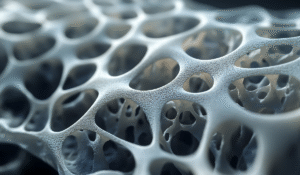Are you dealing with a hormone imbalance, but not sure what to do? Let me guess…you’ve heard they’re unsafe? Well, you’re at the right spot.. the spot where I lay the basics of what started in mid-1990’s, that caused a nationwide scare.
THE TRIAL:
The 1999 Women’s Health Initiative Trial (WHI) is where it all started. The purpose of the study was to associate womens health to cardiovascular and other diseased, cancer and menopausal care. Women were given SYNTHETIC NON-bioidentical estrogen, a pharmaceutical drug known as Premarin (pregnant mare urine- no lie!) and SYNTHETIC progestin (classified as medroxyprogesterone). Both hormones given were synthetic, meaning neither of them are molecularly structured as a women’s own. Synthetic hormones is what is in birth control pills.
THE TRIAL SCARE:
After 3 years, the study was abruptly stopped due to an risk exceeding benefits noted after an exceeding amount of breast cancer cases. Additionally, an increase in coronary events, stroke, and blood clots was also noted, however a decrease in osteoporotic fractures and colon cancer.
LATER STUDIES (ESTROGEN ALONE):
Subsequent publication of the full findings from the same WHI Study showed different effects. The apparent increased risk of breast cancer was only in those who had taken HRT before entering the study!!!
Also, when the results were adjusted for other influencing factors, When the results were split down by age, it was found:
- Women who started estrogen replacement (ERT) between age 50-59 had LESS Heart disease, LESS strokes, LESS breast cancer, and LESS risks of death.
- Women who started ERT between age 60-69 had LESS heart disease and LESS breast cancer, but they had a slightly increased risk of blood clots and stroke. There was no increase or decrease in overall deaths.
- Women who started ERT between ages 70-79 had increased blood clots, stroke and heart disease, and increased overall mortality, but STILL no increase in breast cancer. However, the dose and form of estrogen given was the same for the younger women, which many argue is too high of a dose for older women.
Did you catch that? There was no increase in breast cancer (in fact for women under 70 there was LESS risk). This data is from the same WHI study that trumpeted all over the news that hormones increase breast cancer!
In one study, a small increase in breast cancer as associated in those over age 50, taking estrogen alone. These were obese women
LATER STUDIES (ESTROGEN + PROGESTIN)
Women in the study were divided into 2 groups. One group of women had previously had a hysterectomy, and they received estrogen (ERT) with the results we saw above (no increase in breast cancer).
The other group of women still had their uterus, so they were give progesterone to protect their uterus from the effect of estrogen replacement. The pill they were given contained a synthetic version of progesterone (a “progestin”) which is not bio-identical (not the same as the progesterone their ovaries used to make) and this group of women had a slight increase in breast cancer rates.
UNDERSTANDING THE “ABSOLUTE”:
The media proclaimed that the WHI found a 26% increase in breast cancer in women on hormone replacement (remember this was only true in the group of women taking synthetic progestins).While it sounds pretty scary, this doesn’t mean you have a 26% chance of getting breast cancer.In absolute numbers, for every 1,000 women taking estrogen/progestin there was 1 extra case of breast cancer (0.9 extra cases to be exact). I’m not recommending the use of synthetic progestin, but 1 extra case per 1000 women doesn’t sound like a huge increase in the risk.
It should be noted that this risk is less than that caused by smoking 10 cigarettes/day, alcohol and obesity
Breast cancer risk appears to be duration dependent and may vary with the type of progestin used.
Numbers were re-examined several years later and not found to be statistically significant (in other words, the slight increase in this group of women could have just been due to chance).
**Other studies have shown that if estrogen is given with bio-identical progesterone (the same form of progesterone as your ovaries used to make) there is NO increase in the risk of breast cancer.
THE BENEFITS:
Empower yourself with reading the data.
- A Danish study of 1000 women found a 50% reduction in heart attacks, heart failure and death in women on hormone replacement. Women on estrogen only (the ones without a uterus) had a decrease in breast cancer, women on combined estrogen/progestin had no increase in breast cancer. In total, 26 women in the control group died, compared with 15 women on HRT = 42% reduction in the risk of death in the women on hormone replacement.
Effect of hormone replacement therapy on cardiovascular events in recently postmenopausal women: randomized trial.BMJ 2012; 345 doi: http://dx.doi.org/10.1136/bmj.e6409
- Researchers in Finland looked at the effect of estradiol (bio-identical estrogen) on longterm health in postmenopausal women.Almost half a million women were studied.The results were pretty convincing. Risk of all cause mortality (death from ANY cause) was reduced by 12-28%; the longer the women used the hormones, the lower their risk of death. In absolute numbers, there were 19 fewer heart disease deaths and 7 fewer stroke deaths per 1000 women using hormone replacement for at least 10 years.
Menopause. 2015 Mar 23.
- “Over-interpretation and misrepresentation of the WHI findings have damaged the health and well-being of menopausal women by convincing them and their health professionals that the risks of HT outweigh the benefits.
”Climacteric. 2014 Jun;17(3):215-22.
- “For healthy women aged 50-59 years, estrogen therapy decreases coronary heart disease and all-cause mortality”
Climacteric. 2014 Oct;17(5):540-56.
- “Breast cancer risk increased marginally with estrogen/progestogen therapy, related to duration of use, but with estrogen-alone therapy, breast cancer risk decreased significantly, as did mortality. For younger women receiving estrogen alone, there is great consistency between all randomized trials, including the WHI and observational data showing a coronary benefit and a decrease in all-cause mortality.”
Climacteric. 2014 Dec;17 Suppl 2:12-7.
- “In this paper, we review data supporting the use of HT administered to postmenopausal women, showing it to have more benefit than risk for symptom control, prevention of bone mineral loss and fracture, and improvement of the metabolic profile in women who began HT when they were less than 60 years of age and had their last menstrual period less than ten years previous. In hysterectomized women treated with estrogen only, a reduction in breast cancer risk was noted in all age groups”
J Steroid Biochem Mol Biol. 2014 Jul;142:4-11.
- “Unlike oral estrogens, transdermal estradiol has been shown not to increase the risk of blood clot or stroke, and to confer a significantly lower risk for gallbladder disease. Unlike some progestogens, [bioidentical] progesterone is also not associated with an increased risk of blood clot, or with an increased risk of breast cancer.
“Climacteric 2012;15(Suppl 1):3–10
SAD BUT TRUE:
The harm we have done by unnecessarily misinforming (and scaring) women and their providers
- A Yale study found that estrogen therapy was associated with a reduction in deaths from heart attacks and breast cancer in women aged 50-59 who had had a hysterectomy. The authors estimated that 90,000 women have died because they did NOT continue to take hormone replacement therapy after the WHI study was published.
The Mortality Toll of Estrogen Avoidance: An Analysis of Excess Deaths Among Hysterectomized Women Aged 50 to 59 Years. Sarrell et al American Journal of Public Health: September 2013, Vol. 103, No. 9, pp. 1583-1588.
THE QUESTION… IS HRT SAFE?
While it may take awhile to get the negative thoughts reversed in the minds of practitioners and the public, it’s looking promising as recent data is still finding HRT in women to be overall, safe. A recent 2022 study published in Cancer indicated HRT significantly reduced mortality and cardiovascular disease when initiated in women younger than 60 and/or at or near menopause. While safety has been noted, we can also appreciate that not all women are a candidate for HRT and this is the exact reason why women need to find a practitioner that is consider to be a hormone specialist. In order for a Gynecologist or practitioner to fully understand HRT and bio-identical hormones, additional courses (outside of medical school) which can take many years to complete is what’s necessary in order to optimize the care of a perimenopausal-menopausal women.





